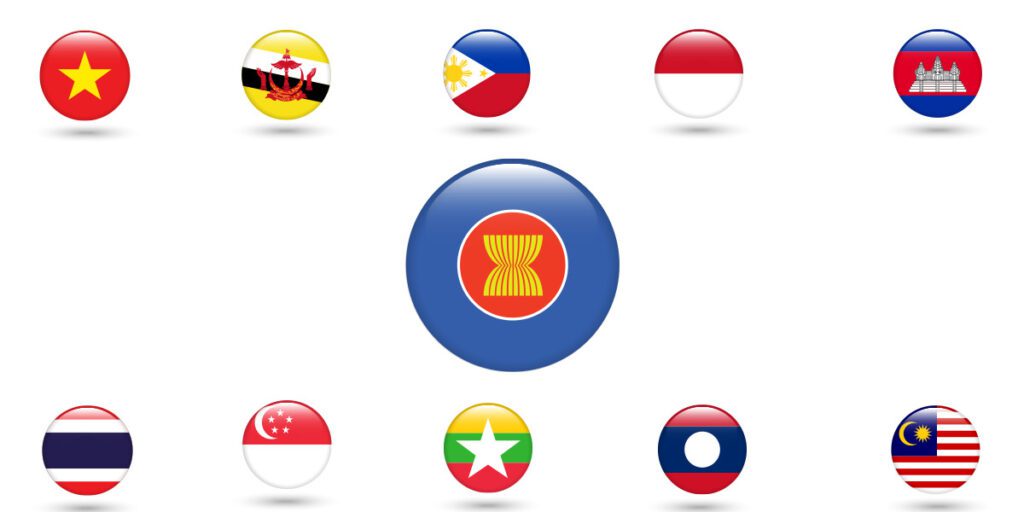Here’s why ASEAN is seen as the fastest-growing data centre market in 2021-22

Of late, the ASEAN region has witnessed unprecedented growth of fast-moving dynamic cities as a result of its growing economy which is predominantly marked by the e-commerce and banking sectors. Not to forget that social media, TV and video-content streaming also play a substantial role in the growing economy, all of which requires a robust IT infrastructure and data networks to support and enable growth.
It is quite obvious that the region is generating colossal amounts of data which has only grown due to the increased internet penetration and is getting bolstered by the younger tech savvy population.
It won’t be wrong to say that data centres are literally at the heart of this growth, and the market is wide and open for the local and international data centre providers to capitalize on this opportunity.
The Covid-19 pandemic has further intensified data demand and data centres have become even more crucial for business continuity in ASEAN.
It’s not surprising that ASEAN is seen as the fastest-growing data centre market in 2021-22. As per a report by Cushman & Wakefield, the Southeast Asian data centre market is expected to reach US $3.4 billion between 2021-2024.
Jessica Cheam, managing director of Eco-Business stated that the ASEAN region is the hotbed for the fastest-growing economies globally and its continuous development will increase the demand for data services. Also, Eco-Business in its joint study with Digital Realty mentioned in its findings that 89 percent of the regional experts in Southeast Asia expected a remarkable data usage growth over the next five years and projected the region to be the fastest growing in the world in terms of data centres.
ASEAN has stood out as an ideal destination for enterprises across the world as it provides a dynamic but stable business environment, pro-connectivity options, low-risk geographic features, uninterruptible power supplies, tech savvy population and numerous data centre critical (IT) infrastructure providers.
The region has also witnessed the continuous adoption of the latest technologies in data centres which is another reason for its growing popularity. For instance, VRLA (Valve Regulated Sealed Lead Acid Batteries) is getting replaced by Lithium-ion batteries and most of the large mega facilities in Singapore and Malaysia use water-based cooling techniques.
For the data centres to stay available, their servers need to run round the clock which uses a lot of electricity and that puts enormous pressure on the fossil fuels. As a result, sustainability is another factor that is driving more and more enterprises toward the ASEAN data centre market. In that light, data centre cooling has been at the forefront of sustainability and energy efficiency discussions, and at the moment it is responsible for 35-40 percent of the total energy consumption at the data centres.
In 2020, SpaceDC, a Singaporean company, launched the first green data centre in Indonesia that uses natural gas to produce electricity.
As per a recent study titled “The future of data centres in the face of climate change”, 66 percent of the respondents gave priority to sustainability and energy efficiency when it came to choosing a third-party data centre provider.
If that wasn’t enough, the corporate giants like Google, Amazon and Microsoft are adding to the trend of using renewable energy to reduce their overall carbon footprint at the data centres in order to comply with the UN Sustainable Development Goals and ASEAN has emerged as their favourite region to relocate their data centres.
In fact, between 2018-2019, Alibaba Cloud, the cloud computing division of Alibaba Group, launched two data centres in Indonesia.
Many of these giants are relocating their data centres to Southeast Asia as a result of the rampant digitization across the region that calls for an efficient cloud infrastructure to power the expansion. Singapore is projected to be the fastest-growing market among the 21 global metros categorized in terms of data gravity, thereby attracting so much data that moving it will become next to impossible.
Also, on a global scale, data gravity is estimated to surpass its double volume annually between 2020-2024, with ASEAN expected to lead with the fastest growth in the intensity of data gravity across all regions.
Therefore, ASEAN is not only the fastest-growing data centre market in 2021-22 but also the new Mecca for data centres.